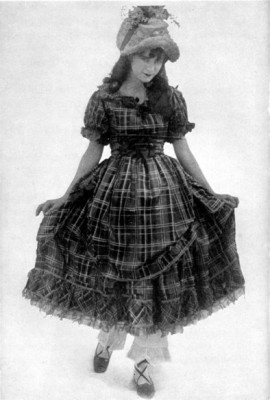
Such ways as those girls have! Such voices! Such eyes! And such names, too! Names which would not fit at all into a northern setting, relatively so hard and unsentimental, but which, when one becomes accustomed to them, take their place gracefully and harmoniously[Pg 395] in the southern picture. The South likes diminutives and combinations in its women’s names. Its Harriets, Franceses, Sarahs, and Marthas, become Hatties, Fannies, Sallies and Patsies, and Patsy sometimes undergoes a further transition and becomes Passie. Moreover, where these diminutives have been passed down for several generations in a family, their origin is sometimes lost sight of, and the diminutive becomes the actual baptismal name. In one family of my acquaintance, for example, the name Passie has long been handed down from mother to daughter. The original great-grandmother Passie was christened Martha but was at first called Patsy; then, because her black mammy was also named Patsy, the daughter of the house came to be known, for purposes of differentiation, as Passie, and when she married and had a daughter of her own, the child was christened Passie. In this family the name May has more recently been adopted as a middle name, and it is customary for familiars of the youngest Passie, to address her not merely as Passie, but as Passie-May. The inclusion of the second name, in this fashion, is another custom not uncommon in the South. In Atlanta alone I heard of ladies habitually referred to as Anna-Laura, Hattie-May, Lollie-Belle, Sally-Maud, Nora-Belle, Mattie-Sue, Emma-Belle, Lottie-Belle, Susie-May, Lula-Belle, Sallie-Fannie, Hattie-Fannie, Lou-Ellen, Allie-Lou, Clara-Belle, Mary-Ella, and Hattie-Belle. Another young lady was known to her friends as Jennie-D.
—Julian Street, speaking of Georgia girls in the early 1900s, in American Adventures: A Second Trip “Abroad at Home“ (1916), ch. 18
